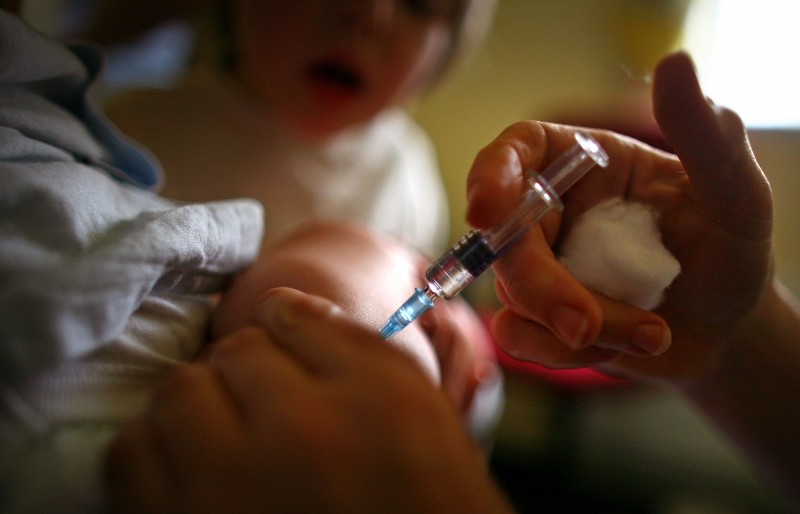Just over two-thirds of California adults -- and nearly as many parents of public school students -- say unvaccinated children should not be allowed to attend public schools, according to a new statewide survey from the Public Policy Institute of California.
The survey comes as a bill to end California's personal belief exemption for vaccines has been passed by the Senate and will be taken up by the Assembly this summer. Each hearing of the bill so far has brought hundreds of opponents to the Capitol.
Under the bill, SB277, children would be required to be vaccinated in order to attend school. Only those who could not be vaccinated for medical reasons would be exempt.
The PPIC survey asked about three dozen questions on a range of issues. Just two were about vaccines, and neither asked specifically if people supported overturning the vaccine exemption. Here is the first question:
Should children who have not been vaccinated from diseases like measles, mumps, and rubella be allowed to attend public schools, or not?
Sixty-seven percent of adults and 65 percent of public school parents said that unvaccinated students should not be allowed in public school. But under SB277, unvaccinated students would not be allowed in either public or private schools. Mark Baldassare, PPIC president and CEO, acknowledged that the question was "not precisely the issue on the legislative agenda."
What's interesting about the question is that the PPIC singled out measles, mumps and rubella -- and support for required vaccination was still very strong. The measles vaccine has caused significant concern after a 1998 study claimed a link between the vaccine and autism. That study has since been discredited.
The second question was about vaccine safety:
In general, how safe are vaccines given to children for diseases like measles, mumps, and rubella—very safe, somewhat safe, not very safe, or not safe at all?
Eighty-seven percent of adults and 88 percent of public school parents said vaccines were either "very safe" or "somewhat safe." More than half of respondents were in the "very safe" category. Seven percent of adults said vaccines were "not very safe" and three percent said they were "not safe at all."
